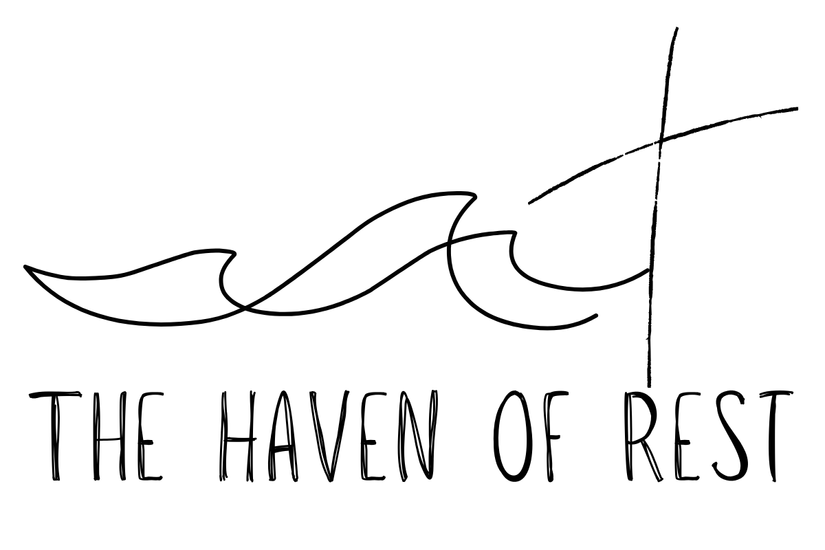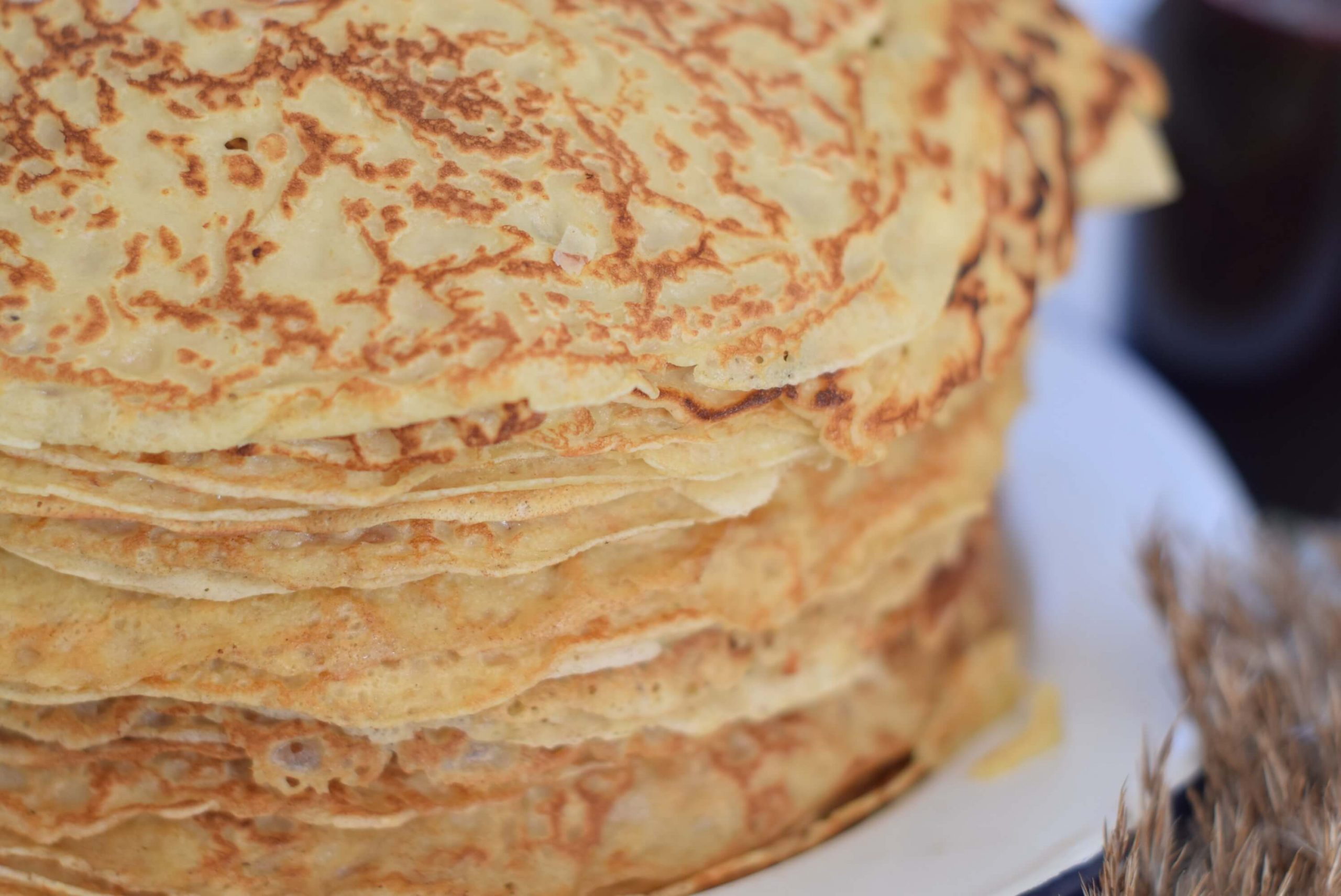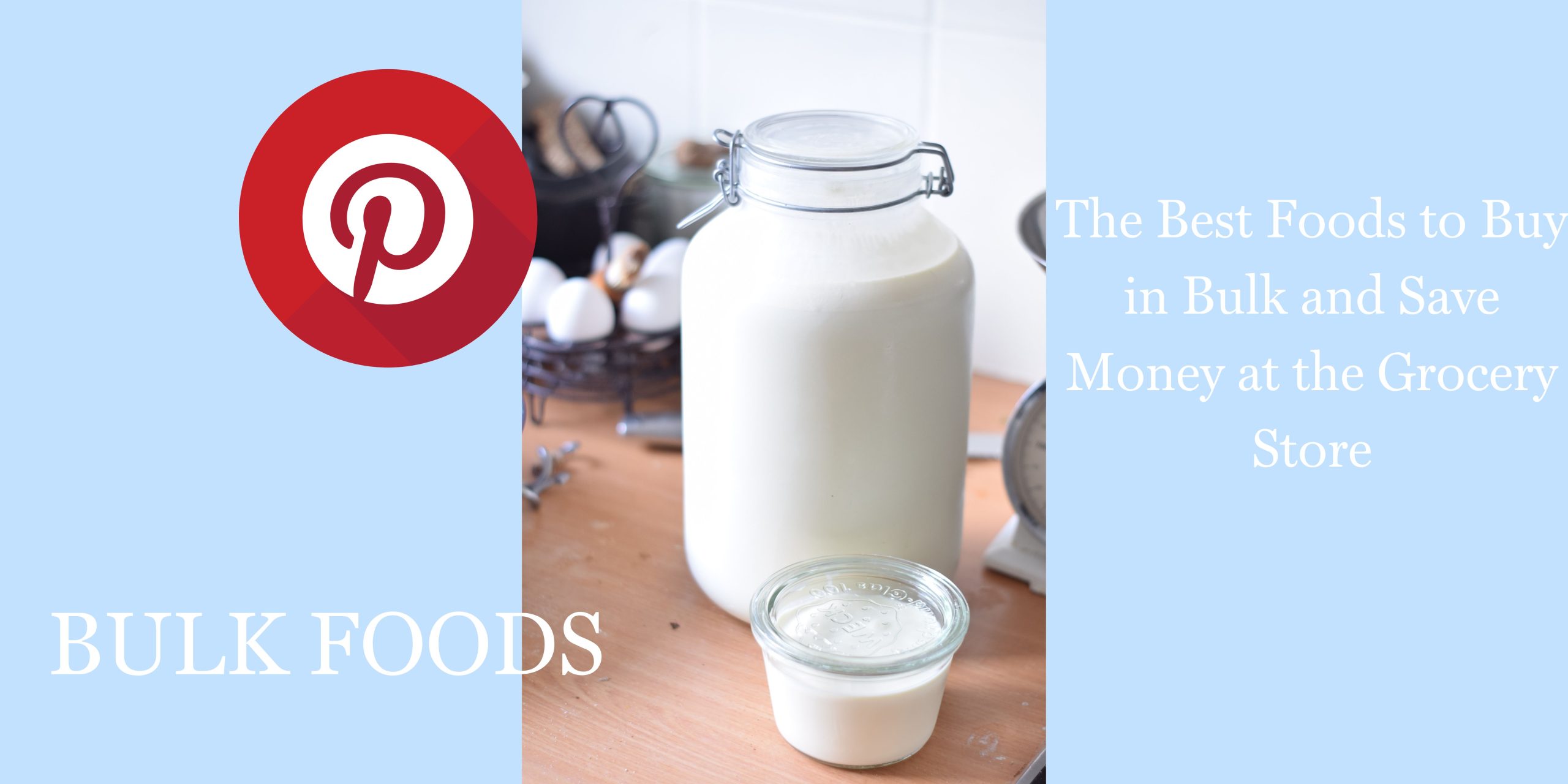Bulk buying is a smart and cost-effective way to purchase food items. With the right approach, bulk shopping can be an excellent way to save money and stock up on pantry staples, even fresh fruits, and other (fresh) food items. In this post, we will explore the best ways to buy bulk foods and the benefits that come with this method of shopping.
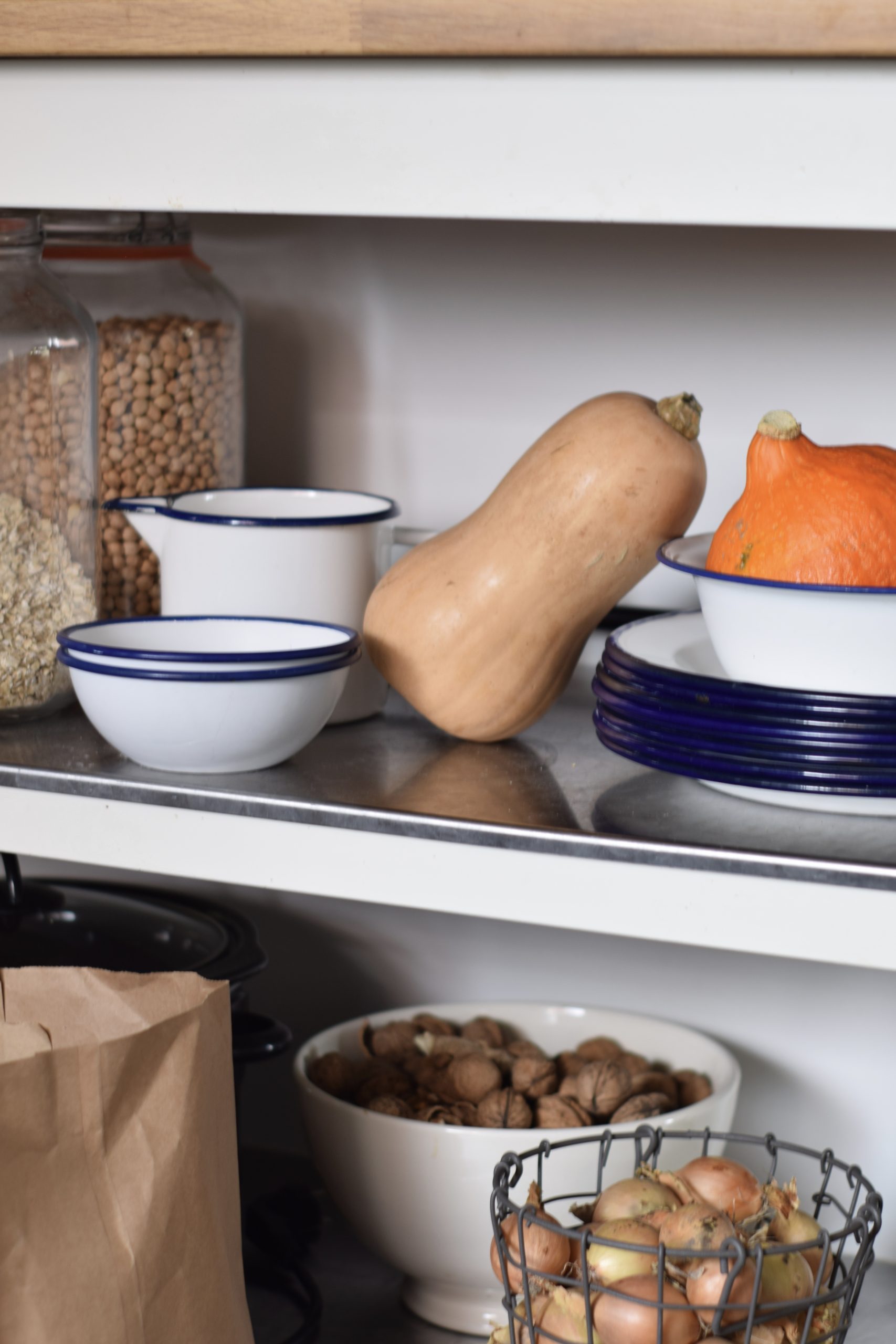
In today’s world, saving money is more important than ever. With the cost of living constantly rising, it can be difficult to make ends meet and still be able to afford all of the essentials, including food. As a family of six, I know that buying in bulk can really make a difference in your spending. One way to cut down on your grocery bill is to buy certain foods in bulk.
Buying food in bulk is a great way to save money, as it allows you to take advantage of (whole)sale prices. When you buy in bulk, you typically pay a lower price per unit, which can add up to significant savings over time. Additionally, buying in bulk often eliminates the need for frequent trips to the store, which can also save you time, money and energy!
Why buy in bulk?
A great benefit of bulk shopping is the ability to find great deals on food items. Buying in large quantities can result in a lower unit price, which can help you save money on your grocery bill. For example, if you buy brown rice in bulk, you can get a good deal compared to buying smaller portions of the same product. The same is true for black beans, white rice, and other staple foods. They have a long shelf life so you can’t really go wrong on those dried foods.
What are the best foods to buy in bulk?
Here are a few items that should always be on your list:
- Rice and Pasta: Rice and pasta are staple foods in many households, and they have a long shelf life, making them ideal for bulk purchases.
- Canned Foods: Canned foods, such as vegetables, fruits, and beans, are another great option for bulk buying. They are a convenient and healthy option for quick meals and snacks, and they also have a long shelf life.
- Snack Foods: Snack foods, such as nuts, dried fruits, and granola, are also good options for bulk purchasing. They are perfect for snacking on-the-go, and they are often more affordable when bought in bulk.
- Whole Grains: Whole grains, such as wheat, einkorn, spelt, oats, quinoa, and bulgur, are a great source of fiber, protein, and other essential nutrients. They are also versatile, and can be used in a variety of dishes, making them a great food to have on hand at all times. Unmilled grains have an even longer shelf life than flour and are often cheaper as well.
- Baking Supplies: Baking supplies, such as flour, sugar, and baking powder, are also good options for bulk purchasing. These items have a long shelf life, and they are essential for baking many of your family’s favorite treats and baked goods.
- If you like to make your own yogurt or kefir, it might be worth buying a few gallons of fresh (raw) milk at once to make a larger batch and increase the milk’s shelf life.
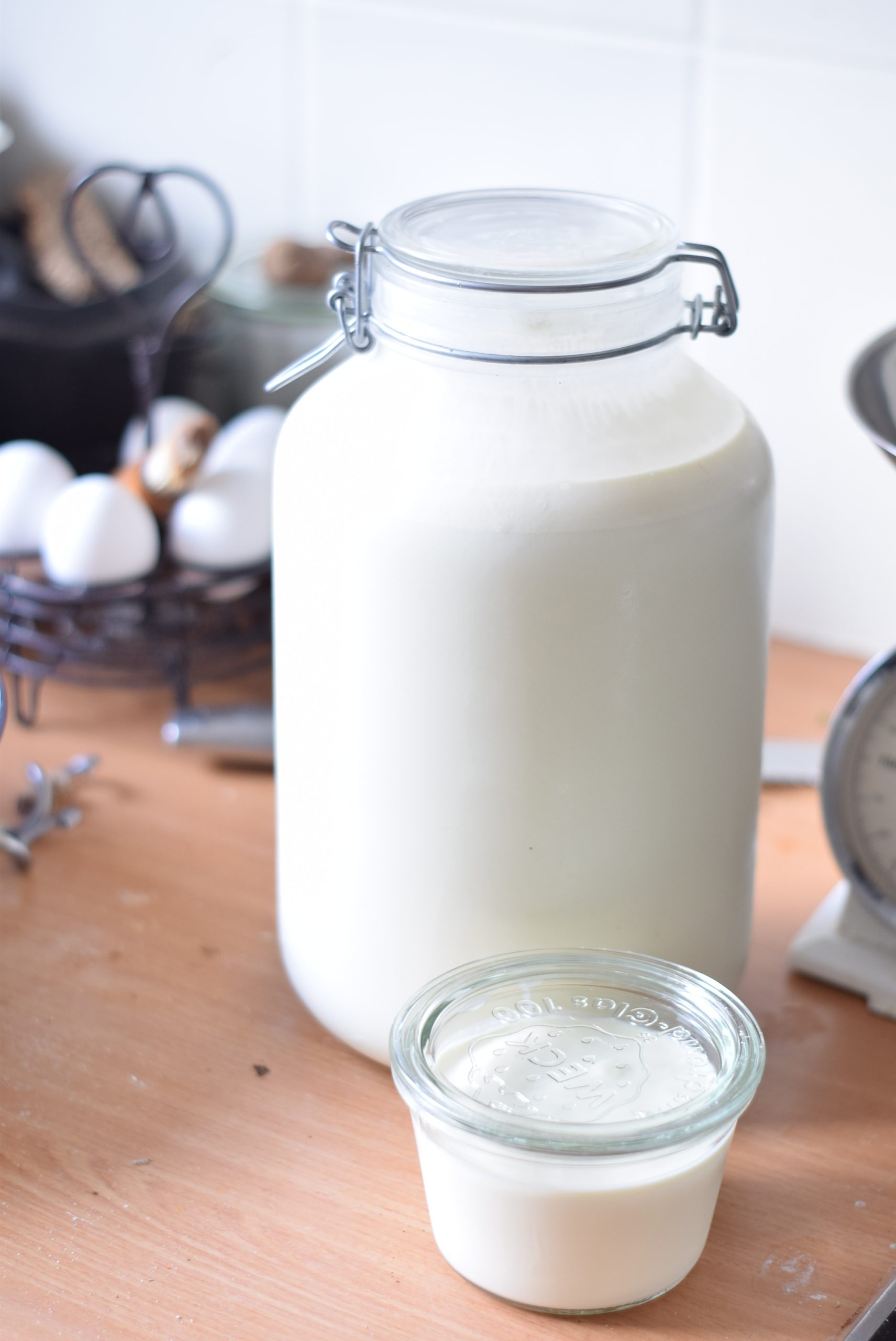
Things to keep in mind…
When it comes to buying in bulk, there are a few things to keep in mind. First, ensure you have enough storage space for the bulk items you purchase. It’s important to consider the storage needs of the food items. But do keep in mind that a whole chicken takes up more freezer space and packs of kitchen towels also take up much storage space. If you buy large amounts of fresh fruits and other food items with a shorter shelf life, they should be stored at room temperature or in the fridge, preferably within reach, and consumed within a few days. Check if enough space is available before you buy. Be sure you have that storage space available in your pantry, freezer, or fridge.
Also, when buying bulk foods, it is important to consider the source of the food. If you are interested in organic food, it is best to buy from a local (grocery) store that specializes in organic products. Local is always better if you ask me because you can check its source for yourself.
Also, even though dried and canned foods usually have a long shelf life, do be mindful of expiration dates, and make sure to use the items before they go bad. Be careful not to buy too much of any one item, as you don’t want to waste food or money.
When you buy bulk food items that need to be processed, make sure you have the resources to process those items. Let’s say you find a great deal on apples and you plan on making and canning about 24 jars. However great the deal may be, first check with yourself, do I have enough time and energy to peel and cook all the apples and then can them? And not the least important do you have enough jars and the right equipment to peel, cook, and can? If this is not entirely the case it might be better to skip the deal since you won’t be able to fully benefit from the discount.
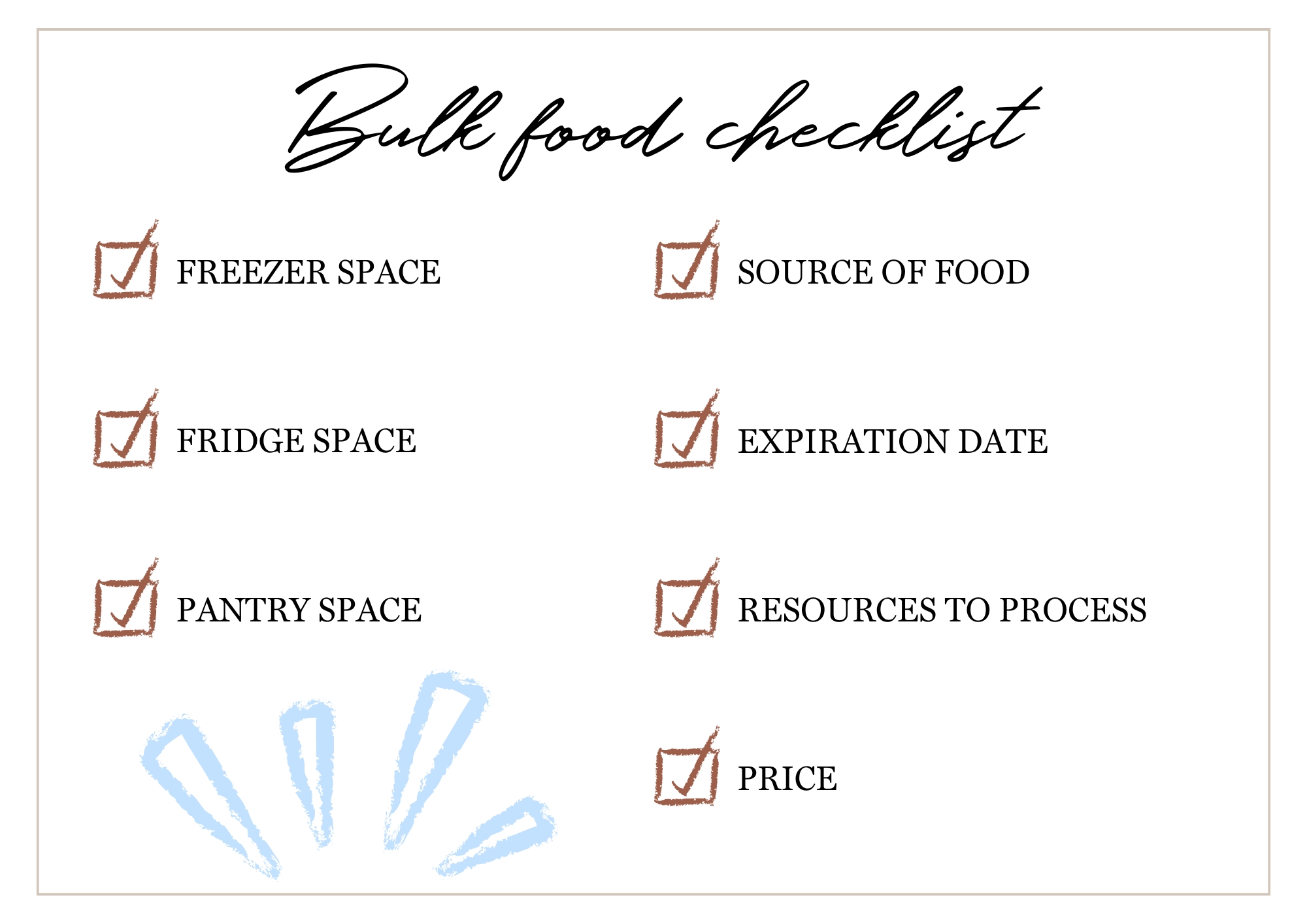
The best way to store bulk foods
Proper storage of bulk foods is important to ensure that they stay fresh and safe to eat. Here are some tips for storing bulk foods:
- Choose the right containers: Use airtight containers, such as glass jars or stainless steel containers, to store bulk foods. This will help keep the food fresh for a longer period of time and prevent contamination from pests or other outside elements. For certain items paper bags will do as well, but make sure you properly close the bag.
- Keep food dry: Ensure that the containers you use are completely dry before storing food in them. Moisture can lead to the growth of mold and bacteria, which can spoil the food.
- Store food in a cool, dry place: Store bulk foods in a cool, dry place, such as a pantry or a cupboard, away from heat and light. Avoid storing food in areas that are exposed to extreme temperatures or fluctuations and direct sunlight, as this can cause food to spoil faster.
- Label and date the containers: Label the containers with the type of food and the date it was stored. This will help you keep track of what you have on hand and ensure that you use the food before it goes bad.
- Store bulk foods in an organized manner: Organize the bulk foods in your pantry or cupboard so that you can easily see what you have on hand and access it easily.
- Use first-in, first-out (FIFO) method: When storing bulk foods, use the first-in, first-out method to rotate your stock. This means that you should use the oldest food first, and move the newer food to the back. This will help you avoid waste and ensure that you are using the freshest food possible.
By following these tips for storing bulk foods, you can ensure that your food stays fresh and safe to eat, and you can enjoy the benefits of bulk buying for a longer period of time.
You might like…
Whole einkorn spelt pancakes
Use some of your pantry staples to make these delicious pancakes!
Healthy and fast to make!
Fresh fruits and vegetables
Bulk foods don’t have to be limited to canned, frozen, or dried. You can buy fresh fruits and vegetables in bulk if you find them for a good price. There are several ways to process bulk fresh fruits and vegetables to increase their shelf life, including:
- Blanching: This involves briefly boiling the fruits or vegetables in water to kill any bacteria and inactivate enzymes that can cause spoilage. After blanching, the fruits or vegetables can be quickly cooled and then frozen or sometimes canned for longer-term storage.
- Canning: This involves preserving fruits or vegetables in airtight jars or cans by sterilizing the contents and sealing the containers. This process destroys certain bacteria, which helps to extend the shelf life of the food.
- Dehydrating: This involves removing the moisture from the fruits or vegetables to prevent spoilage. Dehydrated fruits and vegetables can be stored for long periods of time and are a convenient and healthy snack option.
- Freezing: This is a simple and effective way to extend the shelf life of fresh fruits and vegetables. Simply wash, cut, (and blanch if necessary) the fruits or vegetables before placing them in airtight containers or freezer bags.
- Pickling: This involves preserving fruits or vegetables in a vinegar or brine solution. The acidic environment of the pickling solution helps to prevent the growth of unwanted bacteria and extends the shelf life of the food.
By using these techniques to process bulk fresh fruits and vegetables, you can extend their shelf life and enjoy the benefits of having a well-stocked pantry. Additionally, preserving fruits and vegetables in this manner allows you to take advantage of seasonal produce, which is often cheaper, and enjoy fresh, healthy food all year round.
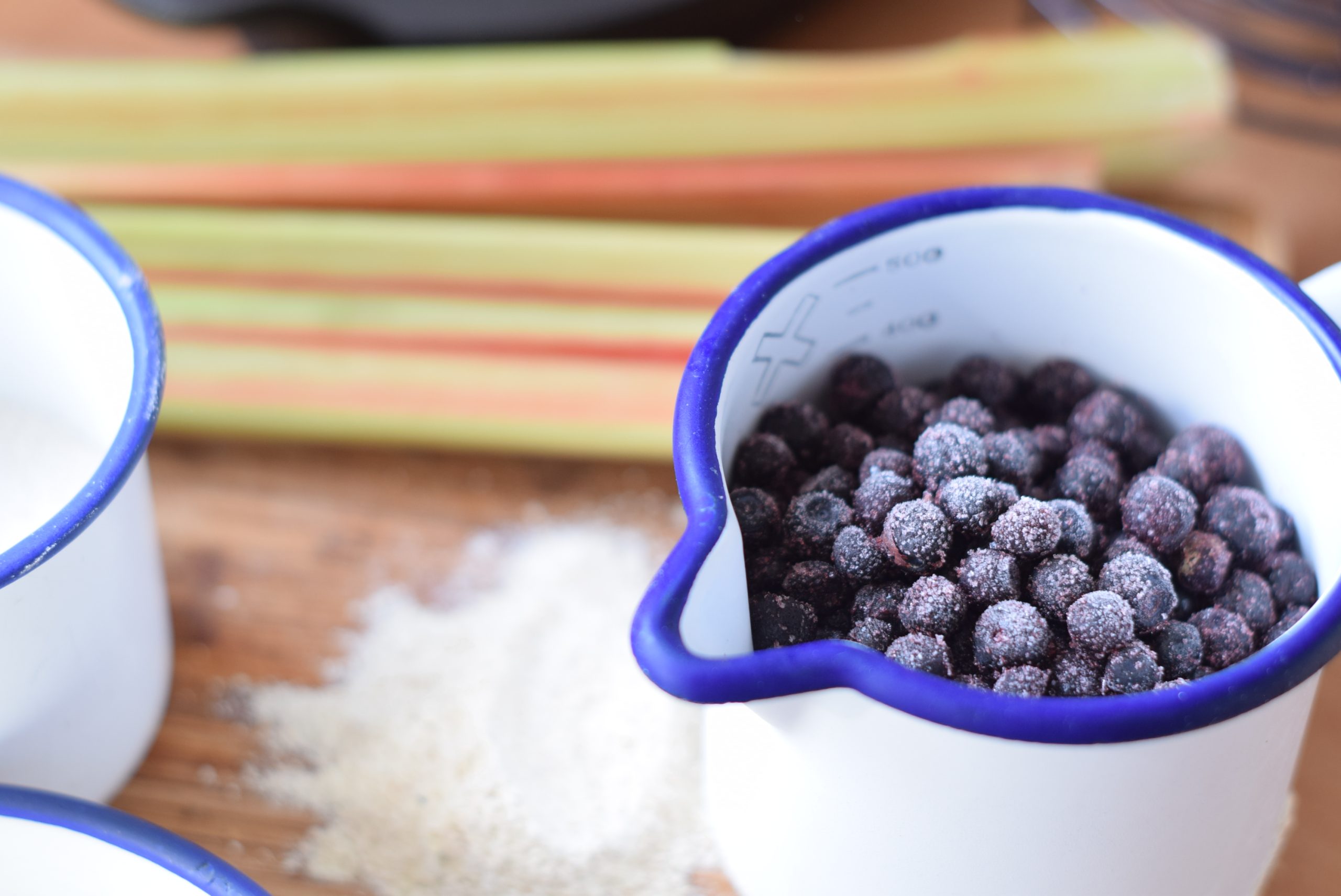
Conclusion
In conclusion, buying food in bulk is a great way to save money and stay well-stocked on the essentials. By taking advantage of wholesale prices and discounts, you can stretch your budget further, and still enjoy healthy, delicious food. Whether you shop at your local grocery store, or online, the foods mentioned above are the foods that you should always consider buying in bulk.Buying bulk foods is a great way to save money and stock up on pantry staples, even fresh fruits, vegetables, milk and other food items.
To sum things up: with the right approach, bulk shopping can be an excellent way to stretch your budget and enjoy the benefits of having a well-stocked pantry. Whether you are shopping at a local grocery store or a warehouse store, be sure to consider the origin of the foods. Also, do you have enough space to store the bulk food items? Is the cost worth it?
Lastly, consider If you have enough time and energy in case the bulk foods need to be processed before they can be stored. Dried, canned, or frozen bulk foods are easier to store away than bulk fresh fruits and vegetables that need to be prepared to increase their shelf life before you can store them.
Checked all the boxes? Then go ahead and fill that pantry!
Never stop learning…
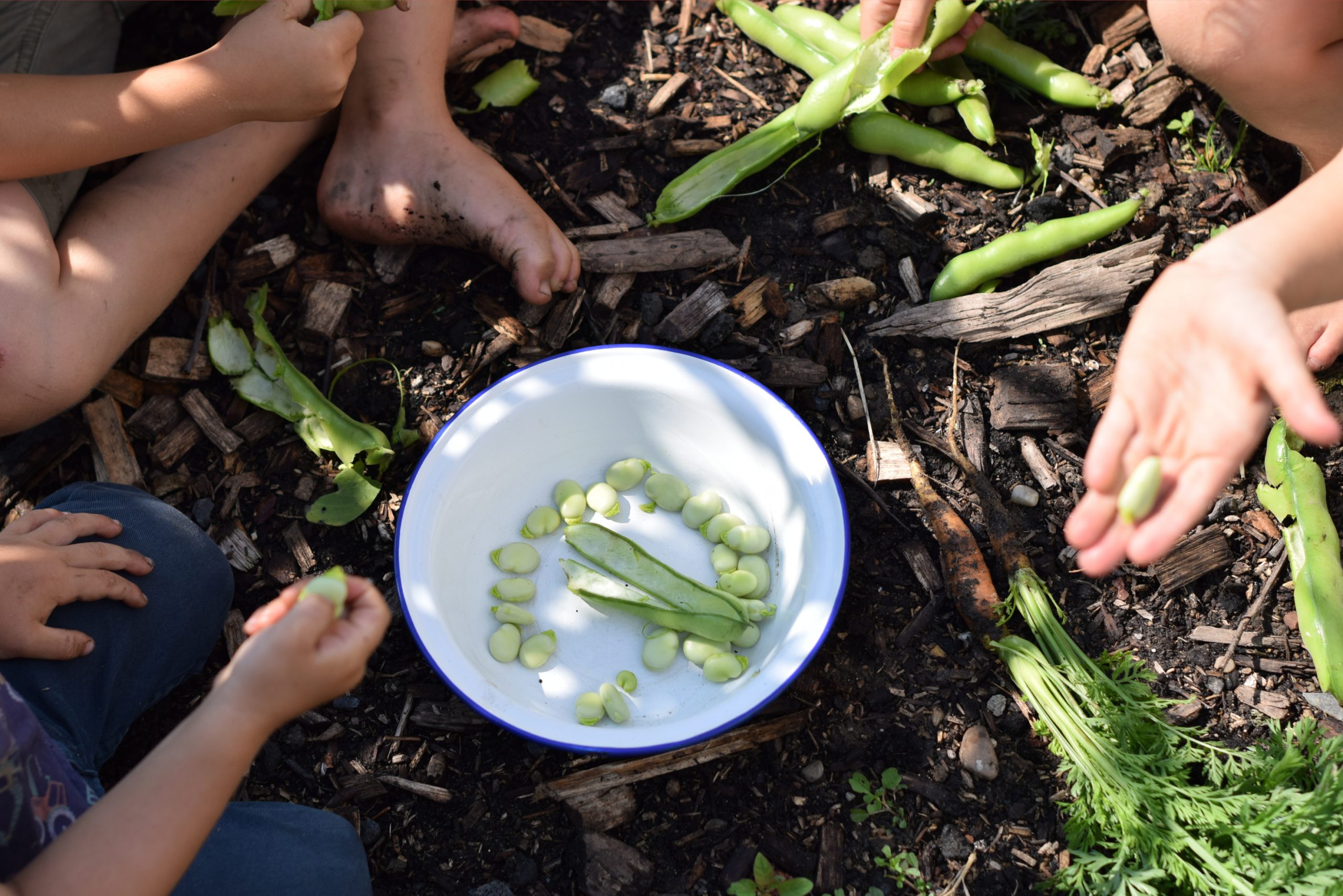
Subscribe to the newsletter and receive more inspiration on simple living.
You can unsubscribe any time
